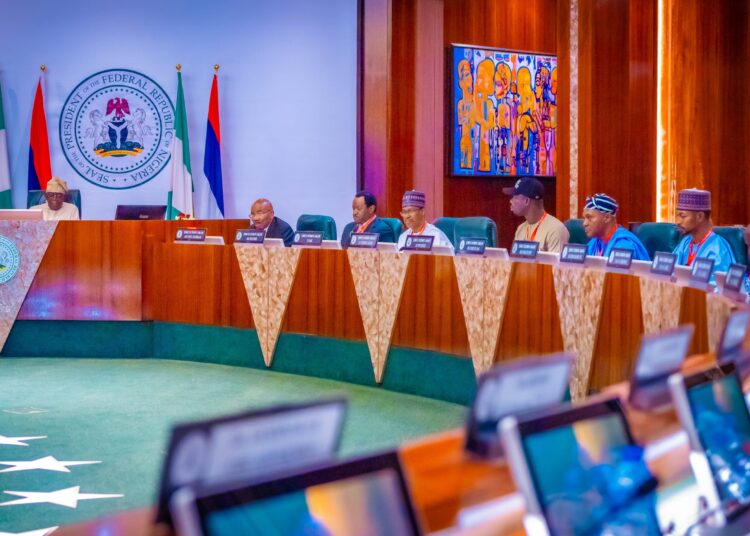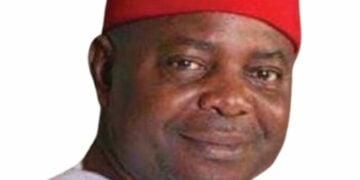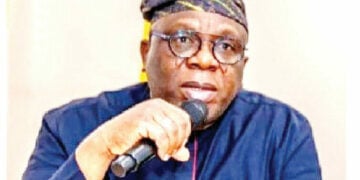In a landmark move that promises to reshape Nigeria’s educational landscape, President Bola Tinubu has officially launched the Nigeria Education Loan Fund (NELFUND).
The long-awaited and much debated initiative marks a significant shift in how higher education is funded in Africa’s most populous nation.
The launch ceremony, held at the State House in Abuja, was more than just a political event. It was a declaration of intent, a statement that education – that great equalizer – will no longer be the preserve of the privileged few.
As President Tinubu eloquently put it, “Education is the greatest weapon against poverty in any society.” In a country grappling with myriad challenges, from economic instability to security concerns, this focus on education as a transformative force is both timely and crucial.
But let’s not get carried away by the rhetoric. The real test of NELFUND will be in its implementation. The numbers are promising: 164,000 students registered, with 103,000 applications received. A war chest of N32 billion is ready for disbursement.
These figures suggest a robust start, but they also hint at the enormous task ahead. To put this in perspective, Nigeria has over 1.5 million students enrolled in tertiary institutions. The current funding, while substantial, may be just a drop in the ocean of need.
The regional disparities in application rates are particularly intriguing. Northern universities, we’re told, have been more proactive in embracing the program. This raises questions about information dissemination and trust in government initiatives across different parts of the country.
Are we seeing the effects of existing educational infrastructure disparities, or is this a reflection of varying levels of skepticism about government programs? This north-south divide in engagement could potentially exacerbate existing regional inequalities if not addressed promptly.
Speaking of skepticism, it’s worth noting the initial doubts, particularly in the southern parts of the country. “Is it true? Is it real? Is it a scam?” These questions, as reported by NELFUND’s executive secretary, Akintonde Sawyer, reflect a deep-seated wariness of government initiatives.
It’s a sentiment that the program will need to overcome to achieve nationwide success. Trust-building measures and transparent operations will be crucial in the coming months.
The exclusion of private institutions from the scheme is another point of contention. While the reasoning – that their high fees would quickly deplete the fund – is understandable, it raises questions about educational equity.
This could potentially push more students towards public universities, straining an already overburdened system.
The enthusiasm of the National Association of Nigerian Students (NANS) is encouraging. Their president, Comrade Lucky Emonefe, called it “a new dawn in the Nigerian Education sector.”
This buy-in from the primary beneficiaries is crucial for the program’s success.
However, student support alone won’t be enough. The program will need sustained political will, efficient administration, and continuous funding to make a lasting impact.
As with any major government initiative, the devil will be in the details. How will the fund ensure fair distribution across regions and disciplines? What measures are in place to prevent fraud and ensure that the loans reach those who truly need them?
And perhaps most importantly, how will the government balance the need for loan repayment with the reality of Nigeria’s challenging job market for graduates?
The repayment question is particularly thorny. Nigeria’s unemployment rate stands at over 33%, with youth unemployment even higher. How will fresh graduates, entering a tough job market, manage to repay these loans?
Will we see a rise in loan defaults, or will the pressure to repay drive graduates into underemployment or the informal sector?
The government must tread carefully to ensure that this well-intentioned program doesn’t become a debt trap for young Nigerians.
Moreover, the focus on loan accessibility must be matched with efforts to improve the quality of education. Increased access to subpar education will do little to achieve the program’s lofty goals.
This initiative should ideally be part of a broader strategy to revamp Nigeria’s higher education system, addressing issues like outdated curricula, inadequate facilities, and brain drain among faculty.
The launch of NELFUND also raises questions about the role of education in national development. While increased access to higher education is laudable, how does this align with Nigeria’s economic needs and job market realities?
Is there a risk of producing an oversupply of graduates in certain fields while neglecting crucial vocational and technical education?
As we watch this initiative unfold, it’s clear that NELFUND has the potential to be a game-changer for Nigerian education. But potential and reality are often separated by a gulf of implementation challenges.
The coming months and years will show whether this ambitious program can live up to its promise and truly become the weapon against poverty and underdevelopment that President Tinubu envisions.
For now, the launch of NELFUND represents hope – hope for countless Nigerian students who saw university education as a distant dream, hope for parents struggling to fund their children’s education, and hope for a nation betting on knowledge as its path to prosperity.
As the first loan cheques are handed out, we’re witnessing not just a policy in action, but a nation’s aspirations taking tangible form.
The success of NELFUND could redefine Nigeria’s educational landscape, potentially setting a precedent for other African nations grappling with similar challenges.
However, its failure could set back educational reform efforts by years. As Nigeria embarks on this bold experiment, the eyes of the nation – and indeed, the continent – will be watching closely.
In the end, the true measure of NELFUND’s success won’t be in the number of loans disbursed or the amount of money spent. It will be in the lives transformed, the dreams realized, and the national progress achieved. As we stand at the cusp of this new era in Nigerian education, one thing is clear: the journey has just begun, and the real work starts now.





